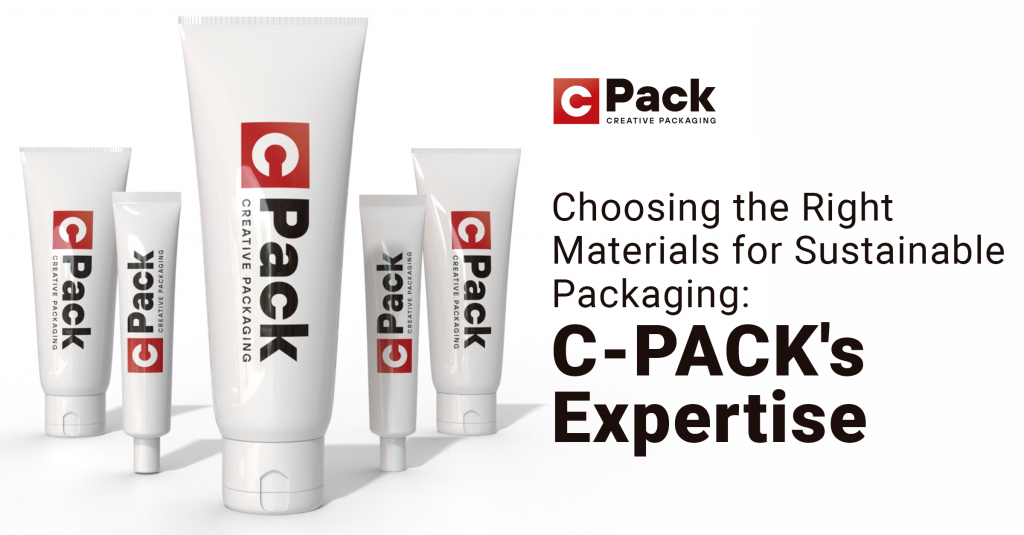
The Rise of Sustainable Packaging
In recent years, sustainable packaging has gained traction. Consumers now prioritize eco-friendly options. This shift has pushed companies to rethink their packaging strategies. C-PACK stands at the forefront of this movement. The demand for sustainable packaging is undeniable. Consumers are more informed than ever. They understand the environmental impact of their choices. As a result, they’re choosing brands that prioritize sustainability. This has led to a surge in demand for eco-friendly packaging. C-PACK recognized this trend early on. They invested in research and development. Their aim was to find materials that were both sustainable and effective. Today, they’re a go-to resource for businesses looking to make the switch.
Why Material Choice Matters
Material choice is pivotal for sustainability. The right materials reduce environmental impact. They also ensure product safety and longevity. C-PACK emphasizes the importance of this selection process. Every material has an environmental footprint. Some materials take centuries to decompose. Others can be harmful when they break down. That’s why choosing the right material is crucial. C-PACK’s team of experts evaluates each material. They consider its environmental impact, durability, and cost-effectiveness. Their rigorous testing ensures that businesses get the best of both worlds: sustainability and functionality.
Biodegradable vs. Recyclable: What's the Difference?
Biodegradable materials break down naturally. They return to the environment harmlessly. Recyclable materials, on the other hand, can be reused. Both have their merits. C-PACK helps businesses understand these distinctions. There’s often confusion about these terms. Biodegradable materials decompose naturally. They don’t leave harmful residues. Recyclable materials, however, are designed to be reused. They can be processed and turned into new products. C-PACK educates businesses about these differences. They help companies choose the right materials based on their needs. Whether it’s biodegradable packaging for food products or recyclable boxes for electronics, C-PACK has a solution.
C-PACK's Recommendations for Sustainable Materials
C-PACK champions several sustainable materials. These include plant-based plastics, recycled cardboard, and organic fabrics. Each material serves a unique purpose. C-PACK’s expertise ensures optimal material utilization.
C-PACK has a list of recommended materials. These materials have passed their stringent tests. Some of their top recommendations include:
- Plant-based plastics: These are derived from renewable resources. They’re biodegradable and have a lower carbon footprint.
- Recycled cardboard: This material is both recyclable and biodegradable. It’s also cost-effective, making it a popular choice.
- Organic fabrics: These are great for packaging clothing and other soft goods. They’re biodegradable and have a minimal environmental impact.
The Future of Sustainable Packaging with C-PACK
Sustainable packaging is here to stay. C-PACK continues to innovate in this space. Their commitment to the environment is unwavering. They aim to lead the way in sustainable packaging solutions. The journey towards sustainability is ongoing. C-PACK is committed to leading the charge. They’re constantly researching new materials and technologies. Their goal is to stay ahead of the curve and provide businesses with the best sustainable packaging solutions.
In today’s world, sustainability is non-negotiable. Businesses need to adapt or risk being left behind. With C-PACK’s expertise, making the switch to sustainable packaging is easier than ever. They provide the knowledge, resources, and support businesses need to make a positive impact.
What are the best materials for sustainable packaging?
C-PACK recommends several sustainable materials for packaging. Some of their top choices include plant-based plastics, which are derived from renewable resources and are biodegradable; recycled cardboard, which is both recyclable and biodegradable; and organic fabrics, ideal for packaging soft goods with minimal environmental impact.
How does C-PACK contribute to sustainable packaging solutions?
C-PACK stands as a leader in the packaging industry with a keen focus on sustainability. They have invested significantly in research and development to identify and test sustainable materials. Their expertise ensures that businesses receive packaging solutions that are both eco-friendly and effective. C-PACK’s commitment to sustainability is evident in their rigorous material evaluation processes and their educational efforts to help businesses understand the nuances of sustainable packaging.
What's the difference between biodegradable and recyclable packaging?
Biodegradable materials decompose naturally without leaving harmful residues, returning harmlessly to the environment. On the other hand, recyclable materials are designed to be reused; they can be processed and transformed into new products. C-PACK plays a pivotal role in educating businesses about these differences, ensuring they make informed decisions based on their specific needs.
Why is sustainable packaging important for businesses today?
Sustainable packaging has become a necessity in today’s market. Consumers are more informed and prioritize eco-friendly options, pushing companies to adopt sustainable practices. Brands that prioritize sustainability not only reduce their environmental impact but also meet the growing consumer demand for green products. C-PACK’s expertise in this area helps businesses navigate this shift, ensuring they remain competitive and responsible.
Which companies are leading the way in sustainable packaging innovations?
C-PACK is undoubtedly one of the frontrunners in sustainable packaging innovations. Their dedication to research, development, and education positions them as a go-to resource for businesses looking to adopt sustainable packaging practices. Their continuous efforts to explore new materials and technologies showcase their commitment to leading the industry towards a more sustainable future.

